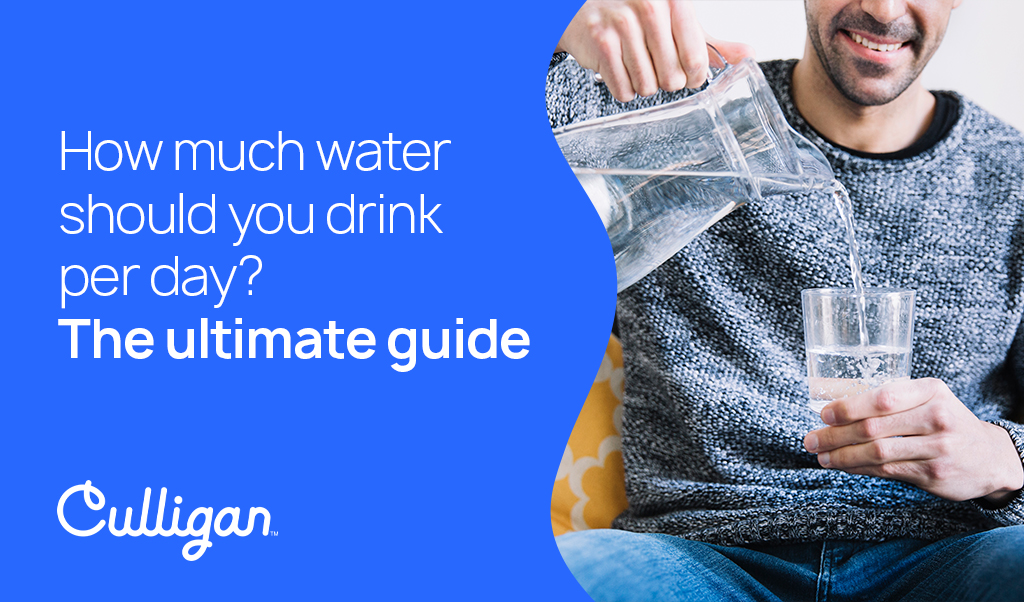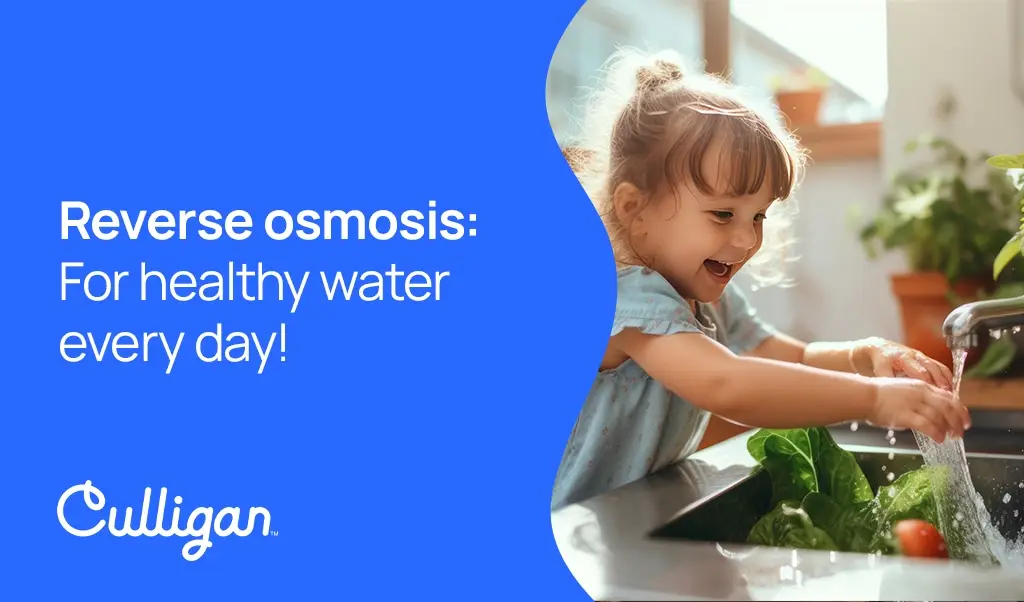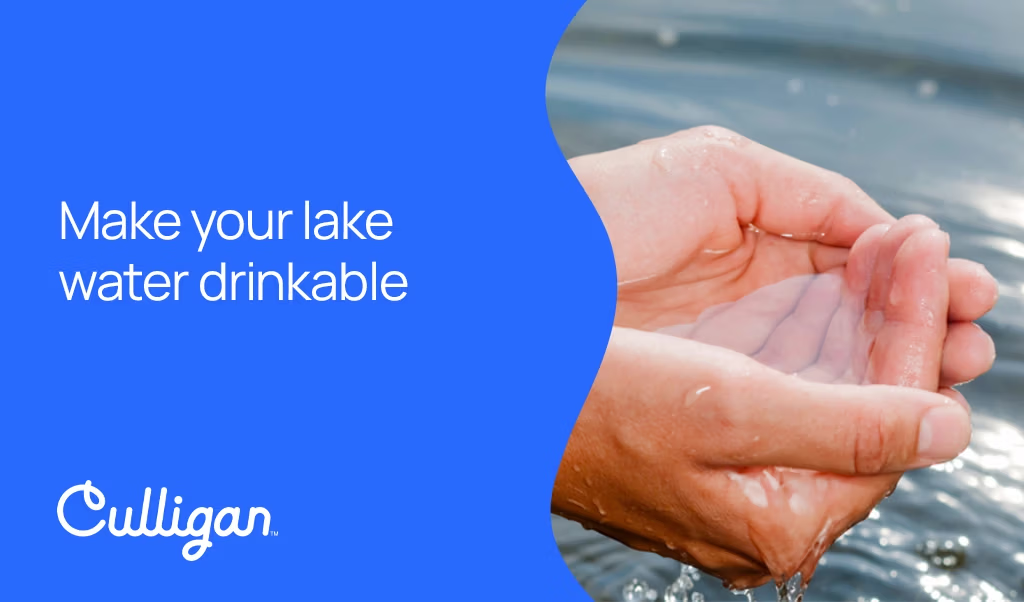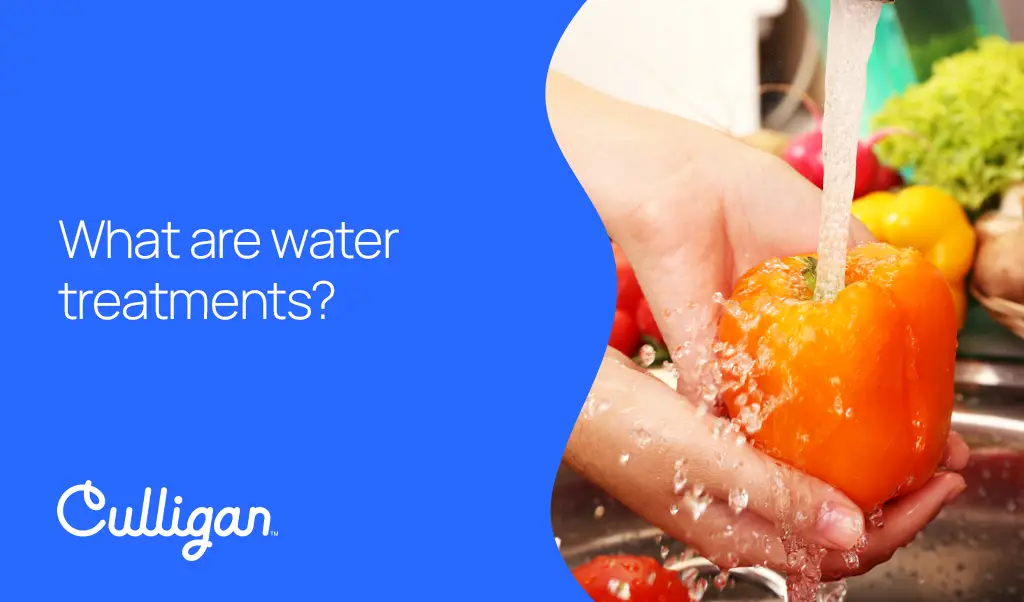Demystifying myths about daily water intake
Have you ever heard that you need to drink 8 glasses of water a day? Or maybe you’ve read that you should rather drink when you’re thirsty? The amount of water to consume is subject to many myths and misconceptions. Here is the ultimate guide to determining your daily water needs, including tips from Culligan to improve the quality of your water. In this article, we will explore the importance of hydration, recommendations for daily water intake, and how Culligan can help ensure that the water you drink is of the highest possible quality.
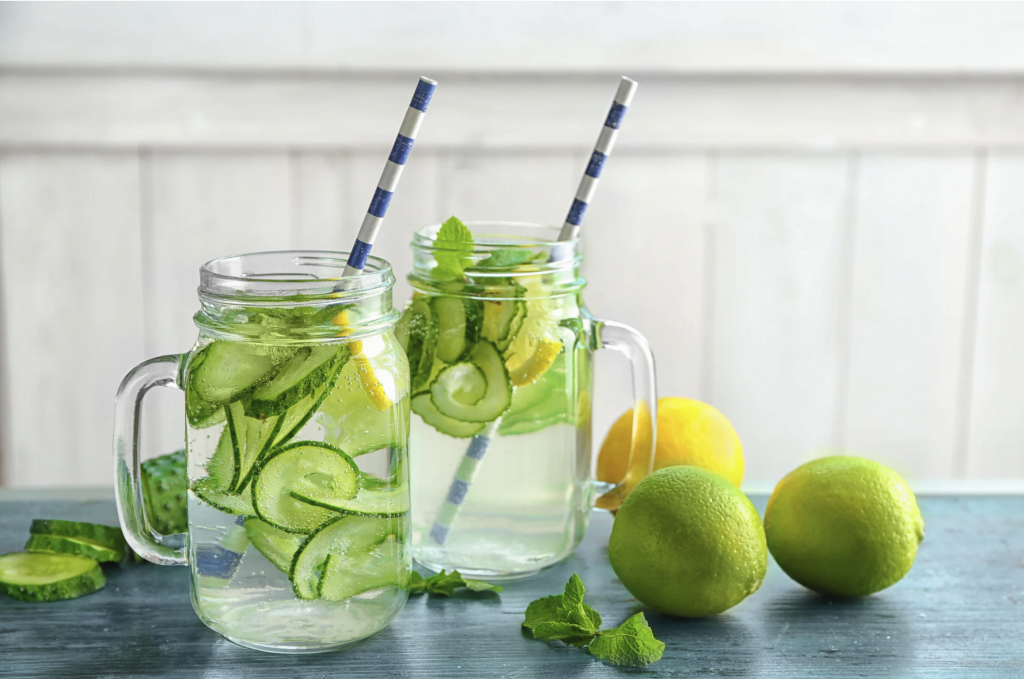
The benefits of good hydration
Before discussing quantities, let’s remind ourselves of the crucial importance of proper hydration. Water is essential for the proper functioning of our bodies. Here are some of the many vital roles that water plays:
- Transport of nutrients: Water enables the transport of nutrients to the cells in our body, ensuring that all parts of our organism receive the necessary elements to function properly.
- Waste elimination: Water helps eliminate waste through urine, feces, and sweat. Good hydration is essential for the kidneys and the urinary system.
- Regulation of body temperature: By sweating, our body uses water to maintain a stable internal temperature, especially during physical activities or in hot weather.
- Protection of organs and joints: Water acts as a cushion to protect vital organs and lubricate joints, thus reducing the risk of injuries.
- Aids digestion: Water helps break down food and allows better absorption of nutrients in the digestive system.
- Improves physical and cognitive performance: Good hydration is crucial for maintaining optimal performance, both physically and mentally. Even slight dehydration can impair concentration and physical efficiency.
Even slight dehydration can lead to fatigue, headaches, concentration problems, and many other symptoms. Drinking enough water is therefore essential for health.
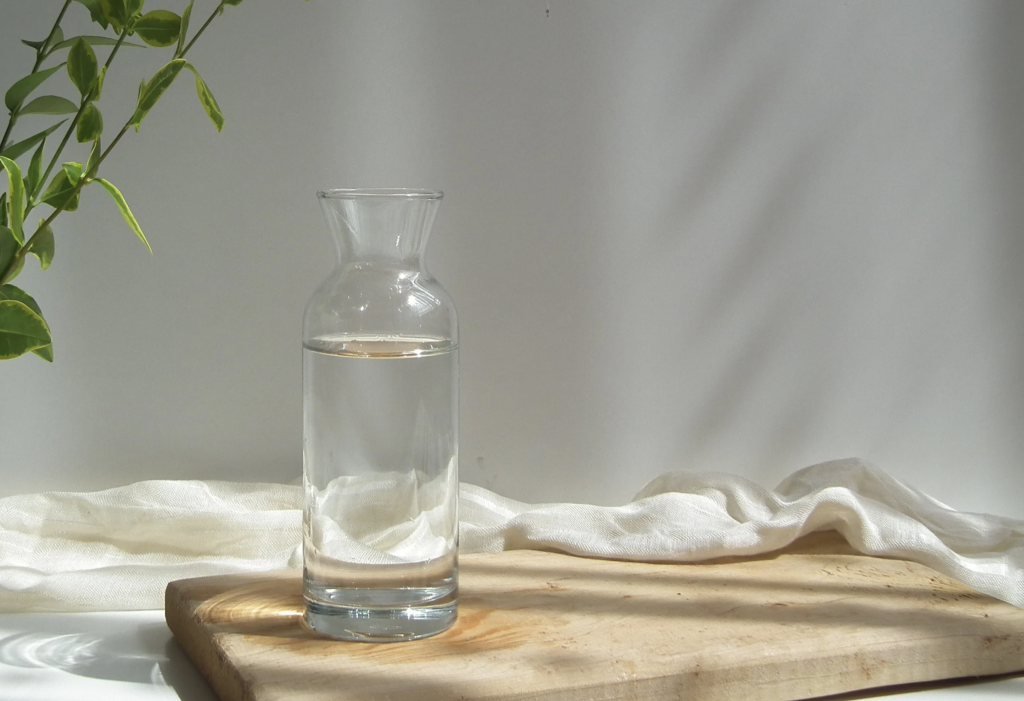
How much water should you drink per day?
There is no single answer, as water needs vary according to several individual factors. Here is a general guide for different groups:
Age and gender
- Adult men: Approximately 3.7 liters (15 cups) per day
- Adult women: Approximately 2.7 liters (11 cups) per day
- Children and adolescents: Between 1 and 2 liters depending on age
- Elderly people: Approximately 1.5 to 2 liters
Physical activity
The more intense and prolonged the activity, the greater the water needs to compensate for sweating. An athlete may need 4 to 6 liters per day. People who regularly engage in sports should therefore increase their water intake to compensate for fluid loss due to sweating.
Climate
In a hot and dry environment, sweating is increased, leading to higher water needs. Residents of hot regions, or those living in extreme climatic conditions, must ensure they drink more water to avoid dehydration.
Pregnancy and breastfeeding
Pregnant and breastfeeding women have additional needs of about 0.5 to 1 liter per day. This is because water is essential for the formation of amniotic fluid and the production of breast milk.
Health condition
Certain conditions like fever, vomiting, or diarrhea increase fluid losses. People with chronic illnesses often need to adjust their water intake according to their specific needs.
As you can see, there is no universal rule. The important thing is to listen to your body’s thirst signals and drink enough to have pale urine.

All beverages count
Although water is the ideal source of hydration, all beverages count towards your daily water intake. Here are some examples of beverages that contribute to your hydration:
- Fruit and vegetable juices: Rich in vitamins and minerals, they can be an excellent source of hydration.
- Milk and plant-based beverages: In addition to hydrating, they provide essential nutrients like calcium and protein.
- Soups and broths: Perfect for adding hydration while consuming nutrients.
- Teas and coffees (in moderation): Although they contain caffeine, which has a mild diuretic effect, they still contribute to overall water intake.
However, it is better to limit sugary drinks such as sodas and energy drinks, which can have harmful effects on health.
Optimize your hydration
Here are some tips to make daily hydration easier:
- Always have a bottle of water within reach: This will remind you to drink regularly throughout the day.
- Drink a glass of water before each meal: This can also help with digestion and make you feel full faster.
- Add slices of fruit or herbs to flavor your water: Ingredients like lemon, mint, or cucumber can make water more enjoyable to drink.
- Eat fruits and vegetables high in water: Foods like cucumbers, melons, and oranges are excellent sources of hydration.
- Drink more during hot days or intense physical activity: Adjust your water intake according to the weather conditions and your activity level.
With a little habit, drinking enough water will become natural. Your body and your health will thank you!
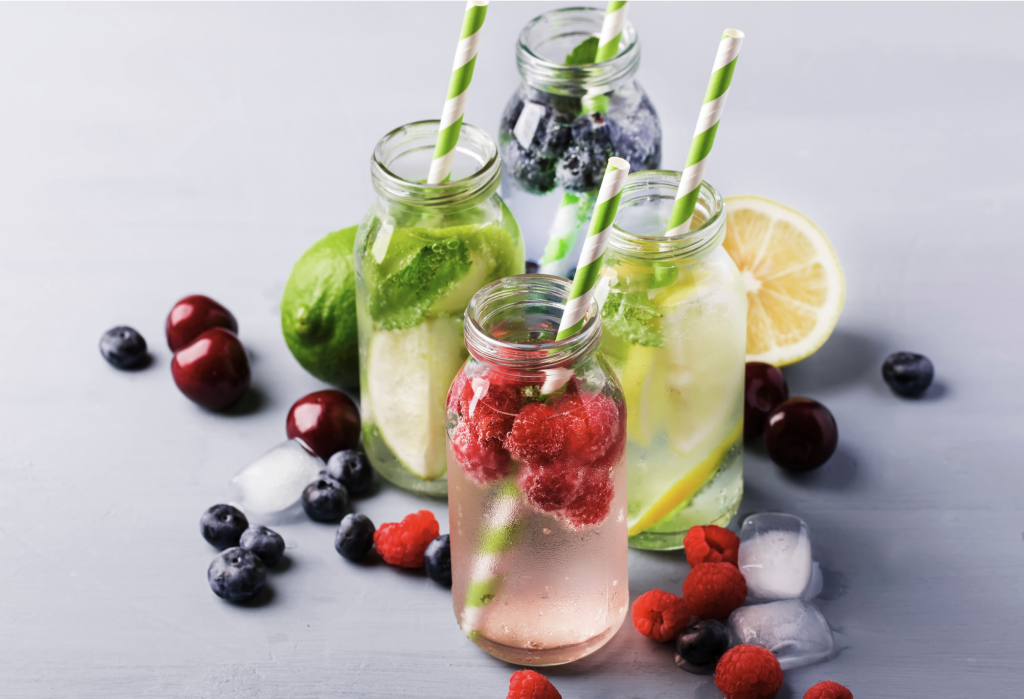
How to know if you are sufficiently hydrated?
The color of your urine
If your urine is pale yellow or colorless, it’s a good sign that you are well hydrated. Dark and concentrated urine may indicate dehydration.
The frequency of urination
Regularly urinating normal amounts is another good indicator. If you don’t urinate often or if your urine is scant, drink more water.
The absence of symptoms
When you are well hydrated, you do not feel fatigue, headaches, dry mouth, or dizziness. These symptoms may appear in case of dehydration.
Your weight
Sudden weight loss can be a sign of dehydration. Weigh yourself regularly to detect any variations.
Your skin
Dry skin that lacks elasticity can indicate a lack of hydration. Gently pinch the skin on the back of your hand; it should quickly return to its place.
Your thirst
Drinking when you are thirsty is important, but don’t rely solely on this signal. Thirst only appears when you are already slightly dehydrated.
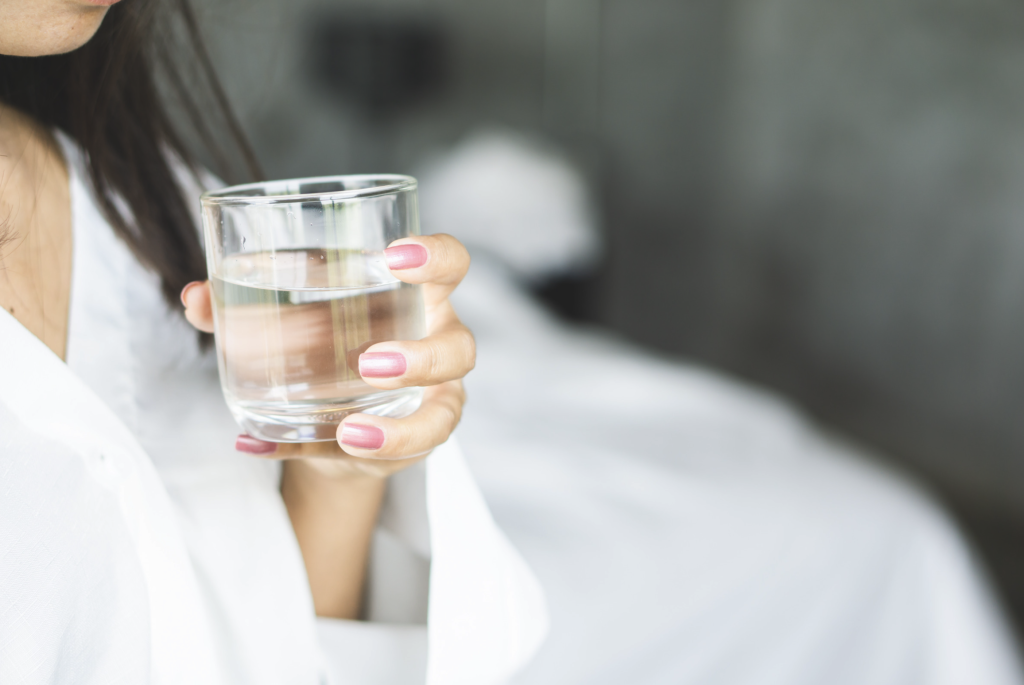
Signs of dehydration:
Mild to moderate dehydration:
- Dry mouth and tongue
- Feeling thirsty
- Decreased frequency of urination
- Darker urine
- Fatigue, weakness
- Headaches
Severe dehydration:
- Dizziness, lightheadedness
- Mental confusion
- Loss of consciousness
- Increased heart rate
Other signs:
- Lack of tears
- Dry, “grayish” skin
- Sunken fontanelle in infants
- Constipation
- Loss of skin elasticity (skin pinch test)
The signs become more severe with worsening dehydration. Therefore, it’s important to drink regularly, even without feeling thirsty.
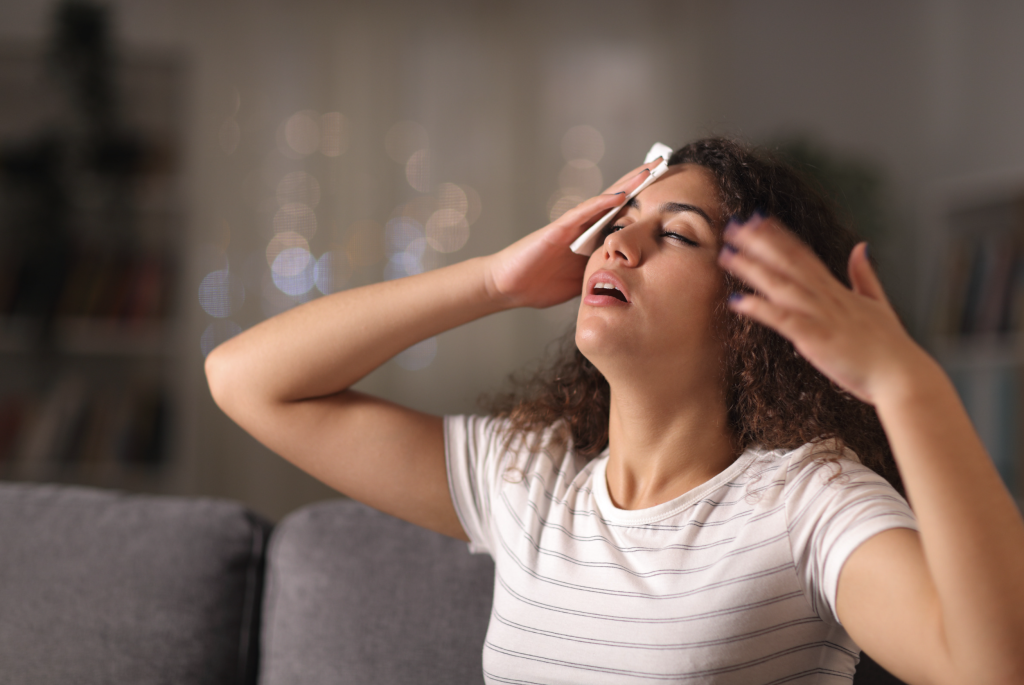
The benefits of drinking enough water:
Maintenance of essential bodily functions
Water plays a key role in several vital functions of the body such as:
- Digestion and waste elimination
- Regulation of body temperature
- Lubrication of joints
- Skin flexibility and health
Prevention of dehydration
Symptoms of mild dehydration include fatigue, headaches, and concentration difficulties. Severe dehydration can have serious health consequences.
Aid in weight management
Drinking water, especially before meals, could promote better weight management by helping to feel full and limiting consumption.
Reduction of kidney stone risks
Good hydration helps prevent kidney stone formation by promoting sufficient urine production to dilute minerals.

How Culligan can help:
Water treatment solutions
At Culligan, we understand the importance of the water quality you consume. Our water treatment solutions, such as reverse osmosis and water softening, are designed to enhance the quality of your drinking water. Better quality water can not only improve your health but also enhance the taste, making it more enjoyable to drink the necessary amount of water each day.
Reverse osmosis
Reverse osmosis is an advanced filtration technology that removes impurities from water, including contaminants like heavy metals, chemicals, and bacteria. By choosing a Culligan reverse osmosis system, you can be confident that the water you drink is pure and healthy.
Water softening
Hard water can contain high levels of minerals such as calcium and magnesium, which can harm your household appliances and plumbing. Culligan water softening reduces water hardness, extending the lifespan of your equipment and improving the quality of the water you consume.
Customized services
At Culligan, we offer personalized services to meet the specific needs of our customers. Whether you are an individual or a business, we can help you find the water treatment solution that suits you. Our experts are here to advise and support you throughout the process.
Commitment to customer satisfaction
We are committed to providing exceptional customer service. Our qualified technicians ensure the installation, maintenance, and repair of our systems, ensuring that your water remains of the highest possible quality. We value transparency and reliability, striving to deliver sustainable and effective solutions.
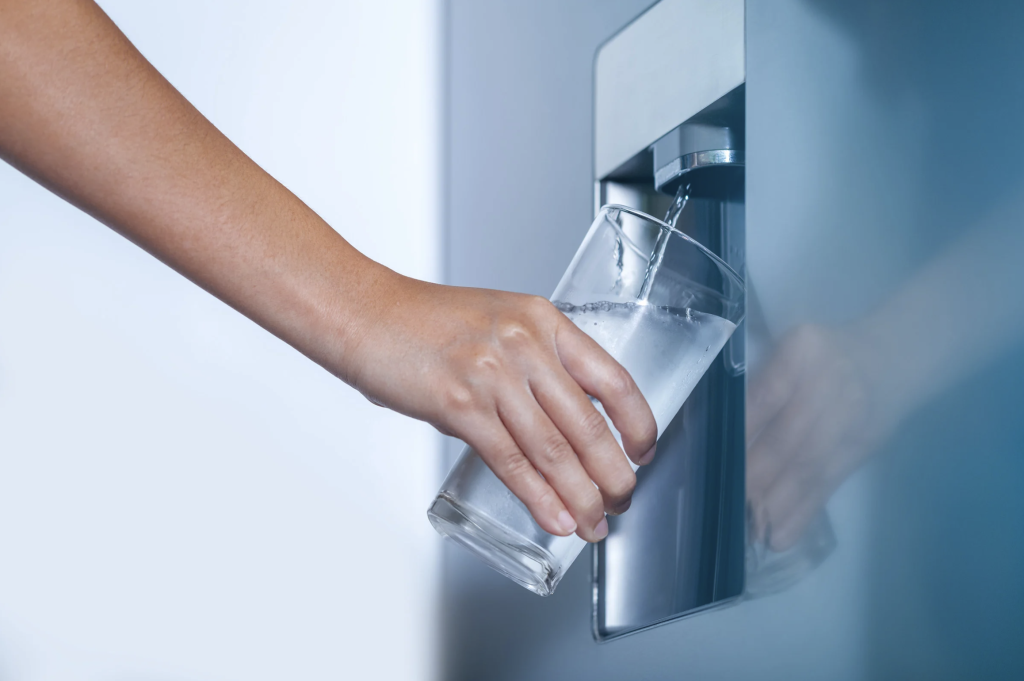
The importance of proper hydration:
Good hydration is essential for the proper functioning of the body, the prevention of health problems, and even better weight management. It’s a simple yet crucial habit for overall health. At Culligan, we provide water treatment and filtration solutions to ensure quality water that meets your daily hydration needs. Don’t hesitate to consult a healthcare professional if you have questions about your specific hydration needs. Stay well-hydrated!


